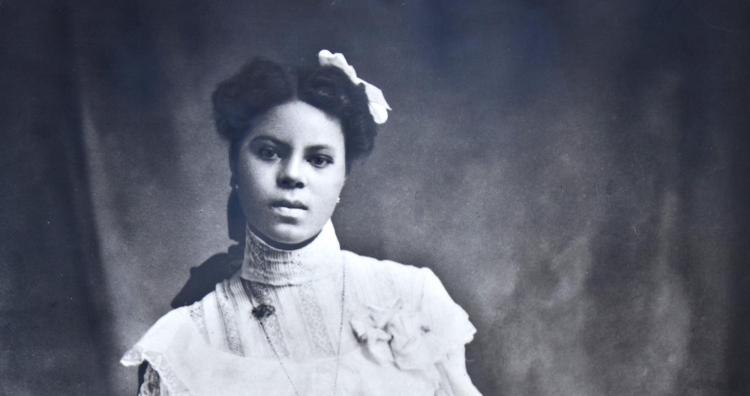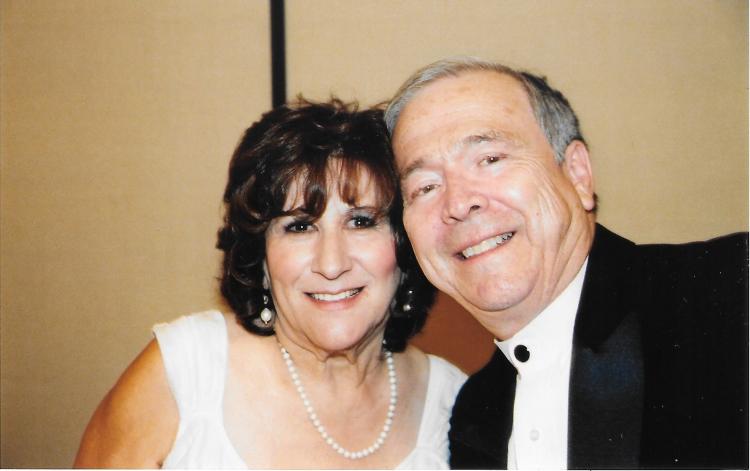CU Boulder to advance resolutions to rename 2 buildings to honor Lucile Berkeley Buchanan; Albert and Vera Ramírez
In February, CU Boulder will advance two resolutions before the University of Colorado Board of Regents that propose the renaming of the Education Building and Temporary Building 1 to honor three individuals who embody inclusive excellence, Chancellor Phil DiStefano announced today.
If approved by the regents, the campus will rename the Education Building to honor Lucile Berkeley Buchanan, the first African American woman to graduate from CU Boulder, and Temporary Building 1 to honor psychology and neuroscience Professor Emeritus Albert Ramírez and his late wife, Vera. The couple advocated for campus programs and initiatives to support underrepresented students, faculty and staff.
“As I have said before—our past holds lessons for our future,” DiStefano said. “Recognizing the academic and inclusive excellence embodied by these three individuals is critical to our ability to learn from our past, to honor those who have made a difference on our campus and to incorporate the diverse stories of the people who make up our collective history as a university.”

High school graduation photo of Lucile Berkeley Buchanan (from the Buchanan Archives)
Buchanan, who died in 1989 at the age of 105 after a long teaching career, earned a bachelor’s degree at CU Boulder, but her alma mater barred her from walking across the Macky Auditorium stage to accept her college credentials. In 2018, Polly McLean, an associate professor of media studies, walked across the stage to accept a diploma in memory of the recognition withheld from Buchanan.
McLean, the first Black woman to earn tenure at CU Boulder and to lead an academic department, spent more than a decade uncovering Buchanan’s story, which she chronicled in her book, “Remembering Lucile: A Virginia Family’s Rise from Slavery and a Legacy Forged a Mile High.” In 2018, she gave the first Lucile Berkeley Buchanan Lecture, an event the chancellor called “long overdue.”
In her book, McClean said she was “motivated to dig deeper” into Buchanan’s story and had “a desire to understand the university’s reasoning for dismissing her achievement.”
Buchanan, who was born in Denver in 1884, was the daughter of emancipated Virginia slaves and became the first in her family to graduate from two of Colorado’s public universities.
In 1905, she graduated with a two-year degree from what is today the University of Northern Colorado. Buchanan left Colorado to teach for a decade in Southern schools under Jim Crow laws before enrolling at the University of Chicago, where she studied German, Greek and the work of British poets Robert Browning and Alfred Tennyson during the summer of 1915.
She returned to Colorado and eventually earned a bachelor’s degree in German at CU Boulder in 1918. Her mother, two sisters and a niece came to campus to watch her graduate. However, after the university barred her from accepting her degree, Buchanan vowed never to return to campus and, according to McClean’s book, “She kept her promise.”
In 1949, she retired after teaching in the Chicago Public School system and returned to Denver, where she lived until her death in 1989.

Vera Ramírez, left, and Albert Ramírez (Photo courtesy of Albert Ramírez)
For their part, the Ramírezes became well known for informal Sunday gatherings—Domingo en Casa—which they hosted in their Boulder home for nine years. The couple welcomed students of color and other underrepresented students, many of them first-generation scholars who were acclimating to college life.
Professor Ramírez was one of the first individuals from an underrepresented group to be hired as a tenure-track faculty member in 1971 and was later promoted to associate professor and full professor. He served as associate dean of the Graduate School and associate vice chancellor for academic affairs. He advocated for the creation of the Center for the Studies of Ethnicity and Race in America (CSERA) and the ethnic studies department.
Ramírez also conceived of the Equity and Excellence Awards Ceremony and served as its host and principal speaker for many years.
“It gave me such pleasure to invite the community of color—faculty, staff and graduating seniors—to the awards ceremony, as well as the senior CU administrators, so that they could appreciate the excellence of that community,” he said.
Because of the historical significance of Temporary Building 1, formerly a medical school and the site of historic Chicano and Chicana rights student activism and protests in the 1970s, the chancellor will propose uniting the building’s longtime name with the Ramírezes’ name to honor their legacy as role models and inclusive excellence leaders.
Ramírez, who still lives in Boulder, said he was one of a small group of Chicano faculty to witness the events of the spring of 1974 “and it forever changed my life.” His wife, he noted, remained an advocate for students of color and other underrepresented students for the rest of her life.
Chancellor DiStefano described Ramírez as “a leader who did not seek out the limelight, generally preferring to bring about change in a quiet, collaborative manner. His contributions to the university over a long and distinguished career were significant.”
CU Boulder alumni familiar with the Ramírez family and Professor Ramírez’s commitment to diversity and inclusion shared their memories with the Boulder County Latino History Project, telling historians that he had been “a major factor in their ability to succeed on campus.”
“Even today, it is not uncommon for me to run into students of those years, and the first thing they tell me about their CU experience is Domingo en Casa,” Ramírez said.


